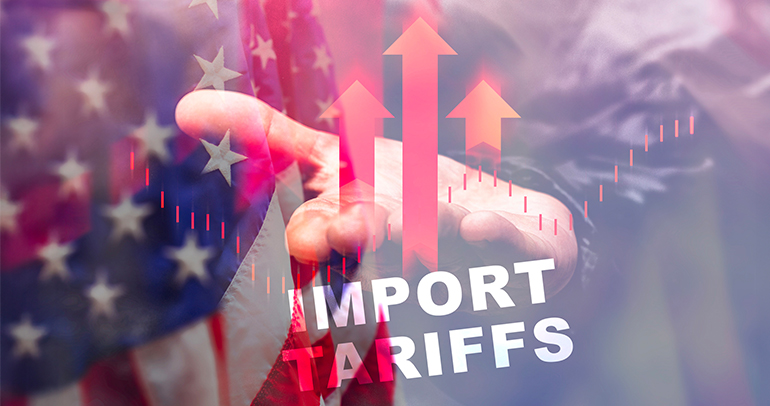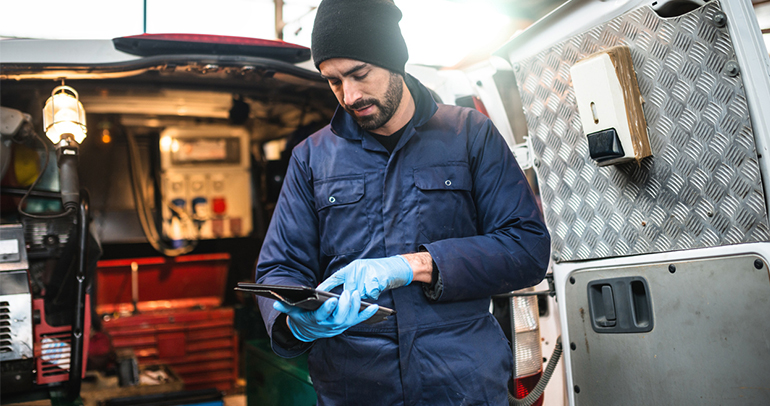
Fleets are inching toward electrification, though dealers and manufacturers have a crucial role to play in educating businesses about the incentives that can boost affordability and help ease business change management to electrifying fleet vehicles.
That’s according to our latest report from Escalent’s Fleet Advisory Hub™, a platform designed to tap into the expectations and perspectives of commercial and fleet vehicle decision-makers. Our newest fleet electrification study examines attitudes toward brands offering battery electric vehicles (BEVs) through feedback from more than 1,000 fleet decision-makers. It also dives into areas of opportunity to support fleets in their transition to BEVs.
The industry is making slow but steady progress toward the electrified fleet. BEV adoption has increased by 31%, from 13% in 2021 to 17% in 2022. Although more than half of participants remain skeptical of the technology, they are actively preparing for the future: 96% have researched BEVs and 66% are shopping—an increase from 43% last year.
Fleet Startups Gain Traction
According to our EVForwardTM findings on the next generation of electric vehicle buyers, vehicle brand is an important factor for consumers considering BEV adoption. Can we say the same when it comes to the commercial vehicle and fleet space? Our fleet electrification report measures just that: fleet decision-makers’ brand-related sentiment around four key fleet and commercial vehicle segments: light passenger, commercial van, commercial truck, and medium- and heavy-duty truck.
Recognizing the growing diversity of offerings on the market, this year’s study provides enhanced granularity by breaking light-passenger vehicles and commercial trucks and vans into separate categories. Honing in on these more detailed segments offers a closer look at how industry giants are faring compared with startups within each segment. Unsurprisingly, Ford continues to dominate in commercial categories while Tesla holds a monopoly in light-passenger vehicles.
Established legacy brands persist in outpacing their younger competitors in awareness. That said, attitudes among decision-makers suggest that BEV startups pose a growing threat to established manufacturers. For those familiar with emerging competitors, sentiment toward them often rivals household names—demonstrating the potential of companies like Canoo, Polestar, BrightDrop and BYD to disrupt the market.
The Importance of BEV Grants for Fleets
Investing in fleet electrification is a costly undertaking. This is especially true when considering the outlays associated with charging infrastructure. Government incentives can help offset these expenditures, and support from them among businesses is high. 90% of fleet decision-makers say that the federal government has some degree of responsibility to ease the cost burden associated with adoption. The majority also consider grants and subsidies to be very or somewhat important.
Several recent initiatives promise to move the needle in this area. Most notably, the Inflation Reduction Act of 2022 includes a clean vehicle credit of up to $7,500 for passenger vehicles and up to $40,000 for commercial vehicles. In addition, a billion-dollar pool of grants and rebates is available to help states, local governments and transportation associations replace heavy-duty vehicles with those that emit zero emissions.
However, our findings show a considerable knowledge deficit. Almost 60% of participants said they are unaware of initiatives to subsidize electrifying their fleet. This is particularly problematic for small and medium-sized companies. While smaller businesses could stand to benefit the most from this funding, they often lack the internal resources to seek it out.
Furthermore, in cases where decision-makers are aware of government grants, the information does not come from the channels they expect. Businesses say they anticipate hearing about these programs through dealers and manufacturers. In reality, the top source of information is word of mouth. This demonstrates a clear appetite for a more intentional approach to educating commercial customers, further cementing the role of dealerships as strategic advisors to fleet businesses.
Dealers Can Pave the Way to Electrifying Fleets
Our EVForwardTM study consistently shows that dealers can have an outsize impact on paving the way for BEV adoption among consumers. In a similar vein for the commercial vehicle space, our Fleet Advisory Hub findings indicate that fleets rely on dealers and manufacturers as trusted sources of information. In particular, fleet decision-makers expect to hear more from dealers about the availability of federal subsidies.
Educating customers about government-sponsored programs falls outside retailers’ traditional purview. Nonetheless, for manufacturers looking to gain or maintain a competitive edge, a strong opportunity exists to bridge the knowledge gap by arming dealers and brand-level internal fleet representatives with current and relevant information. Since most decision-makers are learning about federally funded programs via word of mouth, dealer and manufacturer sales representatives also need to dispel misinformation. In doing so, they can solidify their reputation as a go-to resource.
Once again, this is especially relevant for small to mid-sized fleet companies. These businesses are likely to lack the personal relationships with manufacturers or fleet management firms that larger companies lean on for guidance.
While it is understandable that manufacturers prioritize larger accounts that promise bulk orders, the majority of businesses in the industry are small to medium-sized. By focusing on developing a more robust path to purchase for these prospects—for instance, through a dedicated commercial salesperson who understands the unique demands of a leaner fleet—manufacturers could lay claim to an overlooked but lucrative customer base.
Helping Fleets Navigate the Shift to Electric Vehicles
Regardless of where they are in their adoption journey, decision-makers understand that the transition to electric vehicles is coming. Dealers and manufacturers are uniquely positioned to help companies navigate this shift.
As startups achieve prominence and established brands expand production, the market will become increasingly crowded. Businesses of all sizes will need help identifying the best solutions for their fleet, which includes decisions about electrified vehicles and charging infrastructure as well as navigating business change management as fleets become electrified.
By stepping into this role more fully, dealers can strengthen relationships with corporate customers, build awareness of the grants that can fuel BEV investment and pave the road toward an all-electric future.
If you’d like to learn more about these findings and how we can help you prepare to support fleets in their transition to electric vehicles, please click the button below to send us a note.









